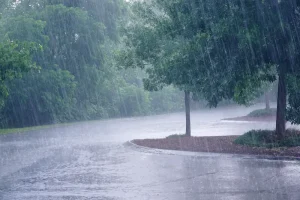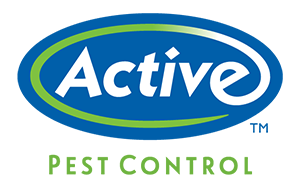 Hurricane season in the United States runs from June 1st through November 30th, and it brings more than just high winds and heavy rains. For homeowners, these storms can cause major structural damage, leaving behind a long list of repairs. As part of hurricane safety, it’s important to be aware that beyond the visible destruction, hurricanes also create ideal conditions for increased pest activity.
Hurricane season in the United States runs from June 1st through November 30th, and it brings more than just high winds and heavy rains. For homeowners, these storms can cause major structural damage, leaving behind a long list of repairs. As part of hurricane safety, it’s important to be aware that beyond the visible destruction, hurricanes also create ideal conditions for increased pest activity.
Once the storm passes, standing water is left in its wake, an open invitation for mosquitoes to breed. Along with mosquitoes, other pests like rodents often emerge in greater numbers following a hurricane. Unfortunately, many people don’t realize how quickly these pests can become a serious problem.
That’s why it’s critical for mosquito control teams and disaster response organizations to be ready with an emergency plan. Pest control should be a key part of the recovery process, helping to protect both your property and public health after a storm. For practical guidance on keeping your home safe, be sure to follow our essential post-hurricane tips.
What to Do After a Hurricane
After a hurricane, be aware that pests like mosquitoes and rodents often become more active. These pests not only pose health risks due to disease transmission, but rodents can also create costly structural damage. Flooded areas are particularly dangerous, as fire ants can form floating colonies and sting if disturbed.
Take a look at these important tips for staying safe after the storm:
Mosquito Control Following a Hurricane
- Remove Water: Empty all standing water around your property, including items like buckets, tarps, tires, and lawn equipment.
- Improve Drainage: Ensure water flows properly from gutters, flower pots, ditches, and stormwater drains to prevent mosquito breeding.
- Dress Safely: During cleanup, wear long sleeves, pants, closed-toe shoes, and light-colored clothing to reduce the risk of bites.
- Use Repellent: Apply EPA-approved insect repellents with DEET, picaridin, or oil of lemon eucalyptus for added protection.
- Avoid Peak Times: Stay indoors during dawn and dusk when mosquitoes are most active and likely to bite.
Protect Your Home From Pests After the Storm
- Clear Debris: Remove leaves, branches, and fallen trees from your yard, as these can attract pests searching for shelter.
- Dry Out: Eliminate excess moisture inside your home by removing soaked carpets, rugs, and furniture to prevent mold growth.
- Seal Damage: Repair any structural damage promptly and seal holes or gaps to stop pests from getting inside.
- Unclog Gutters: Clean out gutters and storm drains to prevent water buildup and pest activity.
- Manage Waste: Keep trash bins clean and store them away from your home to avoid attracting unwanted pests.
Post-Hurricane Food Safety
- Flooded Produce: Do not eat fruits, vegetables, or any unpackaged food that came into contact with floodwaters.
- Boxed Goods: Discard all packaged dry goods like cereal, flour, pasta, and similar items, even if they appear dry.
- Damaged Cans: Throw away any canned food with bulging, dents on seams, or signs of swelling.
- Unsafe Cans: Avoid using cans with snap tops, pull tops, or any home-canned goods, as they may not be safe.
- Spoiled Refrigeration: If your refrigerator lost power during the storm, all perishable foods should be discarded.
- Thawed Frozen Items: Frozen food that thawed above 41°F or for more than 4 hours should not be eaten.
- Contaminated Gardens: Do not consume any produce from gardens that were exposed to floodwaters.
- Sanitize Surfaces: Disinfect all food contact surfaces, dishes, and utensils before using them.
- Discard Porous Items: Throw away items that can’t be fully disinfected, such as wooden cutting boards, baby bottle nipples, paper napkins, and paper towels.
Can Hurricanes Raise the Risk of Mosquito-Borne Diseases?
Hurricane damage often leaves behind conditions that are perfect for mosquito breeding. Flooded landscapes and pools of standing water created by the storm become prime sites for mosquitoes to lay eggs, causing a rapid increase in their population. While many mosquitoes may die during the hurricane, the remaining floodwaters trigger the hatching of dormant eggs, fueling the next generation. Typically, mosquitoes begin to emerge seven to ten days after the hurricane occurs.
Once hatched, female mosquitoes actively seek blood meals to reproduce, restarting the breeding cycle. Without swift mosquito control efforts during hurricane recovery, mosquito populations will continue to grow, heightening the risk of mosquito-borne diseases in the affected communities.
These rising mosquito numbers can complicate hurricane recovery efforts. Relief workers and residents are more exposed to mosquito bites, especially during power outages when air conditioning is unavailable. Mosquitoes can enter homes more easily through open windows when screens have been damaged by the storm. This increased health risk can slow the recovery process, making mosquito control a critical part of effective hurricane recovery.
Protecting Communities from Disease with Mosquito Control
In Georgia, the risk of mosquito-borne diseases persists year-round, regardless of natural disasters such as hurricanes. Maintaining ongoing mosquito control and surveillance efforts is essential to keep these threats in check. Partnering with professional exterminators like Active Pest Control ensures that effective, targeted measures are in place to reduce risks from illnesses such as West Nile virus, Zika virus, and dengue fever. Protecting public health requires a continuous, community-wide commitment.
Should a hurricane affect your area, we are dedicated to providing support to our customers and neighbors. Contact Active Pest Control for guidance and assistance. Our team is here for you.


 770-954-9941
770-954-9941